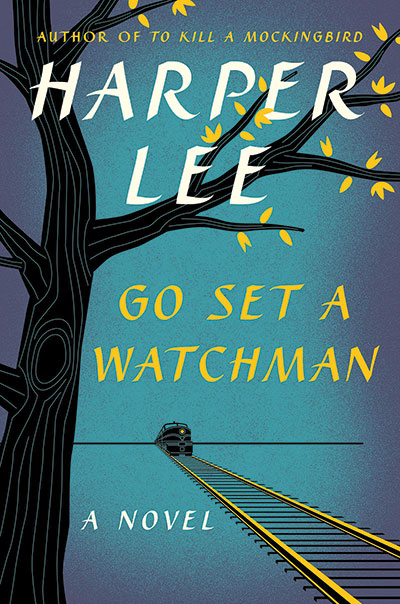What does Harper Lee want? Why would she publish a book after vowing never to do so after Mockingbird? Our number one story comes from Bloomberg. The book released on Tuesday is already causing strong reactions in Mockingbird fans. Some are disturbed that their beloved Atticus FInch turns out to be a racist. Since most of us read “To Kill a Mockingbird” in Middle School or High School we tend to think of it as a tool to discuss social wrongs. Injustice is prevalent, racism is dangerous, good men stand up for those who can’t defend themselves. These are the very themes teenagers struggle with. Mockingbird helps bring literature to life with these themes. We’re now living through a time of such racial unrest and such concern for the injustices we have seen with young black men and women targeted in violent ways, it is heartbreaking to think that one of our literary heroes has fallen from grace at a time when we need good men to stand up for those who can’t defend themselves.
The other irony here is the question of whether this new manuscript is even something Lee wants the world to see? The author who taught us all to stick up for the person who needs protecting may very well need protecting herself. Her lawyer, with power of attorney and the legal ability to sign for Lee found the manuscript in Lee’s safe, negotiated the deal with HarperCollins Lee’s publisher and will likely manage the fund that come from the blockbuster sale of this newly discovered story.
Tanja Carter addresses these concerns in a WSJ oped published on Monday where she also dropped the bomb that she just found what she thinks is a third novel, bridging the gap between Mockingbird and Watchmen. Our top pick for you is a piece of great reporting. Here a journalist worked sources reluctant to talk and paints a picture of how this manuscript came to be.
“Unedited and, perhaps, dated, Watchman could’ve easily been marked a literary curiosity, something more aligned with, say, True at First Light, Ernest Hemingway’s autobiographical novel about a trip to Africa written in the 1950s but published in 1999, long after his death, or The Rum Diary, Hunter S. Thompson’s middling foray into fiction that was rejected by multiple publishers in the ’60s, then suddenly found worthy after he became famous. Instead, it’s poised to become the best-selling literary novel of the year—if not the decade. ‘This launch is reminiscent of a book on the scale of Harry Potter,’ says Burnham.”
Watchman is the most preordered book in the HarperCollin’s history, and it set to make close to $40 million. It’s topped Amazon’s bestseller list and is the website’s most preordered book in the last four years.
“Ever since Watchman was announced, rumors have persisted that a younger, more mindful Lee—the one who swore not to publish anything again—wouldn’t abide any of this. At one point, the state of Alabama even got involved to assess a claim of possible “elder abuse.” How aware is Lee, really, of this new book? Does she, as her publishers insist, approve of its publication? The answers lie with Lee’s lawyer, friend, and confidante, [Tonja] Carter.”
This piece highlights Lee’s struggles in preserving her hold on the Mockingbird brand and managing her estate. There have been countless lawsuits and squabbles within Lee’s hometown of Monroeville, and Carter has been there every step of the way.
“If Watchman continues to sell, Lee stands to make a lot of money. And since the book is a companion to To Kill a Mockingbird, Lee will have a book series under literary trademark law, which makes it easier to protect her titles. By applying for a trademark, suing to protect it, publishing the new book, and setting up Mockingbird Co., Lee seems to be slowly and methodically assembling a To Kill a Mockingbird business from the confines of her nursing home. But given her ever-shrinking circle of friends, there aren’t many people left to run it when she’s gone. Several longtime friends say they’ve been barred from visiting the Meadows.”
“At some point, Carter may find it difficult to serve as power of attorney, manage her estate, and run her nonprofit. ‘If there is a situation in which, after her death, her entire estate or substantial assets pour into a foundation run by Tonja Carter, it would be highly problematic,’ says Jeffrey Schoenblum, professor at Vanderbilt University School of Law and an expert on estates and private wealth transfer. He points out that whether Carter will benefit financially from this isn’t known, although Lee’s heirs could sue to find out. Lee had two siblings, in addition to Alice, who died years ago; a nephew said he hadn’t been told about the formation of a nonprofit.”






